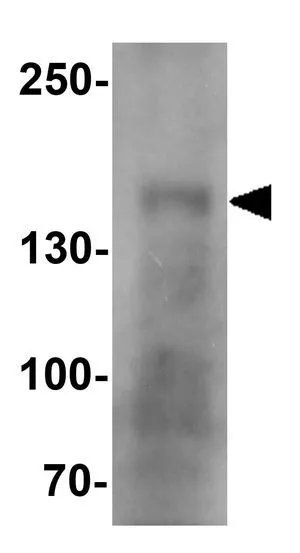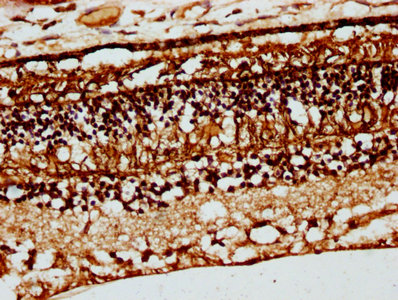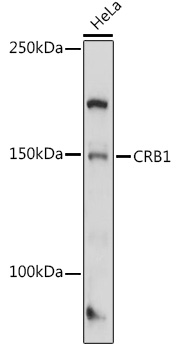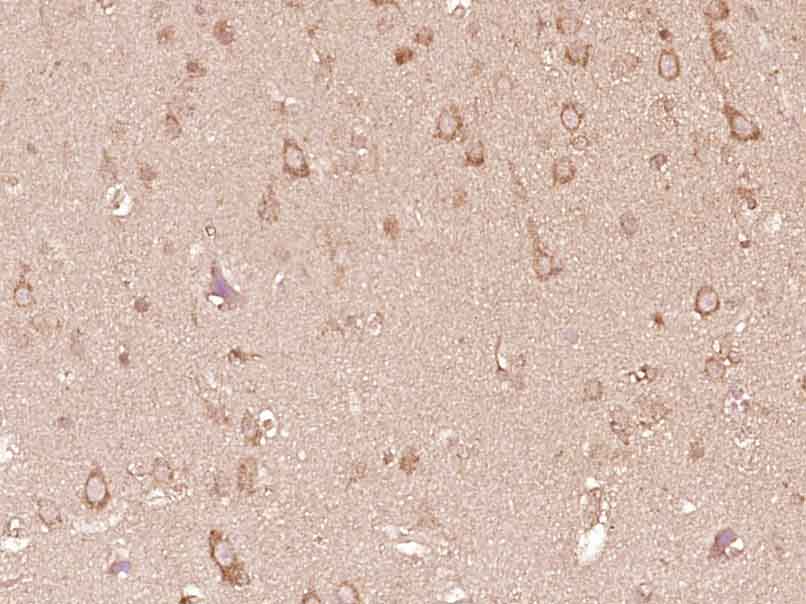
WB analysis of human small intestine tissue lysate using GTX32103 CRB1 antibody. Working concentration : 1 μg/ml
CRB1 antibody
GTX32103
ApplicationsWestern Blot, ELISA
Product group Antibodies
ReactivityHuman
TargetCRB1
Overview
- SupplierGeneTex
- Product NameCRB1 antibody
- Delivery Days Customer9
- Application Supplier NoteWB: 1 - 2 microg/mL. *Optimal dilutions/concentrations should be determined by the researcher.Not tested in other applications.
- ApplicationsWestern Blot, ELISA
- CertificationResearch Use Only
- ClonalityPolyclonal
- Concentration1 mg/ml
- ConjugateUnconjugated
- Gene ID23418
- Target nameCRB1
- Target descriptioncrumbs cell polarity complex component 1
- Target synonymsCRB1-A, CRB1-B, CRB1-C, LCA8, RP12, protein crumbs homolog 1, crumbs 1, cell polarity complex component, crumbs family member 1, photoreceptor morphogenesis associated
- HostRabbit
- IsotypeIgG
- Protein IDP82279
- Protein NameProtein crumbs homolog 1
- Scientific DescriptionThis gene encodes a protein which is similar to the Drosophila crumbs protein and localizes to the inner segment of mammalian photoreceptors. In Drosophila crumbs localizes to the stalk of the fly photoreceptor and may be a component of the molecular scaffold that controls proper development of polarity in the eye. Mutations in this gene are associated with a severe form of retinitis pigmentosa, RP12, and with Leber congenital amaurosis. Alternate splicing results in multiple transcript variants, some protein coding and some non-protein coding.[provided by RefSeq, Apr 2012]
- ReactivityHuman
- Storage Instruction-20°C or -80°C,2°C to 8°C
- UNSPSC41116161







